Latest DePIN Product Launch News

a day ago
CUDOS at Consensus 2025: Pioneering Decentralized Compute Solutions
The recent Consensus 2025 event highlighted a pivotal shift in the blockchain landscape, emphasizing that decentralized infrastructure has become a necessity rather than an emerging trend. CUDOS took center stage, engaging with Web3 developers and AI infrastructure teams, showcasing their commitment to providing scalable, permissionless, and privacy-preserving compute solutions. The focus was clear: to eliminate gatekeepers and opaque pricing structures that often accompany centralized platforms, thereby promoting a truly decentralized computing environment through the CUDOS Intercloud initiative.
Throughout the event, various themes emerged, particularly around policy and regulation, which are expected to shape the future of blockchain innovation. Keynotes emphasized the growing importance of programmable stablecoins designed to operate outside traditional financial systems, highlighting the increasing demand for reliable infrastructure. The Hackathon Hall buzzed with activity as AI builders and decentralized physical infrastructure (DePIN) projects explored innovative solutions for decentralized inference, mining, and data services. Participants were not only focused on current developments but also on the future of Web3 and the role of AI in driving the next wave of innovation.
CUDOS stands out in this evolving landscape by offering digital wallet-authenticated access to high-performance GPU nodes without the need for accounts or KYC processes. Their cross-chain compatibility makes them a suitable choice for AI, DePIN, and Web3-native applications. As the demand for decentralized compute solutions grows, CUDOS Intercloud is positioned to support projects that require scalable infrastructure without the constraints of centralized control. The message from Consensus 2025 is clear: decentralized compute is essential for the future of AI, blockchain, and digital sovereignty, and CUDOS is at the forefront of this transformation.

2 days ago
Helium: Revolutionizing Telecom with Decentralized Networks
Helium is making waves in the telecom industry by leveraging cryptocurrency to build what could be the most disruptive network in America. Originally starting as an Internet of Things (IoT) initiative, Helium has transformed into the world’s largest decentralized wireless network. With the support of the Decentralized Physical Infrastructure Network (DePIN) movement, Helium is redefining how infrastructure is constructed. Abhay Kumar, Helium's Protocol Lead, emphasized the company's mission: to create wireless infrastructure that fosters innovative business models. This evolution has allowed Helium to expand its services to include both IoT and 5G mobile networks, solidifying its position in the DePIN landscape.
The transition from connecting devices to connecting people has been pivotal for Helium. The launch of Helium Mobile, a new carrier, exemplifies this shift. In the U.S., users can access a free cell phone plan or opt for a limited plan at just $15 per month. Kumar attributes this affordability to Helium's unique protocol, which significantly reduces bandwidth costs for carriers. By utilizing the Helium network, carriers pay only 50 cents per gigabyte, a stark contrast to traditional pricing models. This cost efficiency is largely due to the DePIN model, which incentivizes individuals and businesses to install wireless nodes, such as 5G radios, in exchange for cryptocurrency rewards.
Helium's decentralized infrastructure approach has emerged as a leading example of the potential of DePIN. Kumar noted the company's fortunate timing in establishing this model before it became widely recognized. By allowing local shop owners to contribute to the network, Helium not only enhances customer satisfaction but also enables carriers to extend their reach. The collaborative nature of this model benefits all parties involved, showcasing how decentralized networks can revolutionize the telecom sector and create sustainable business practices.

2 days ago
Crypto Market Resurgence: Theta, Gala, and PayFi Lead the Charge
The crypto market is experiencing a resurgence, with notable gains in tokens like Theta, Gala, and Sandbox, which have reignited interest in the metaverse and GameFi sectors. Theta Network has seen a remarkable 37% price increase, buoyed by a partnership with Nanyang Technological University to develop EdgeCloud AI infrastructure. This collaboration aims to enhance decentralized video streaming and NFT platforms, positioning Theta as a leader in AI-powered Web3 services. Despite a slight price correction, the overall trend remains bullish, reflecting growing investor confidence.
Gala Games is also riding a wave of optimism, with its token GALA surging nearly 47% following a high-profile partnership with the White House to create a Web3-based Easter Egg Hunt game set for 2025. This unexpected collaboration has not only boosted GALA's price but also sparked interest in the GameFi sector, leading to a broader uplift in the crypto market. The sustained gains and high buying interest indicate a strong recovery and renewed enthusiasm among investors, showcasing Gala's potential for mainstream adoption.
Amidst these developments, PayFi is emerging as a transformative force in the crypto landscape. Platforms like Remittix are redefining cross-border payments by enabling instant crypto-to-fiat transfers without requiring users to have extensive crypto knowledge. With support for over 50 crypto pairs and a user-friendly interface, PayFi is poised to revolutionize real-world finance. As the crypto market continues to evolve, the focus on practical innovations like PayFi suggests that 2025 could mark a significant shift toward mainstream adoption of blockchain technology in everyday financial transactions.
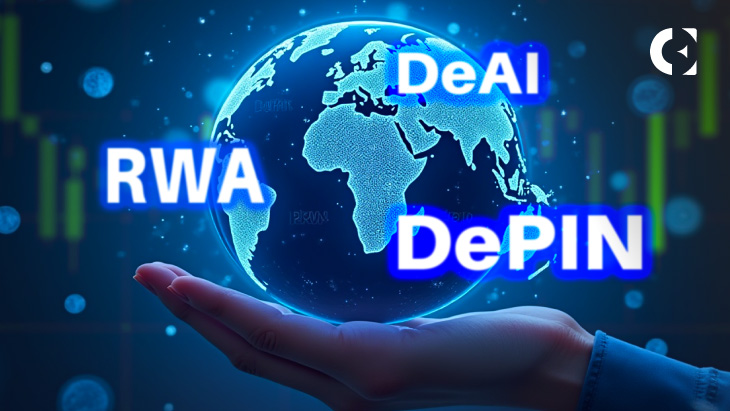
2 days ago
Exploring the Growth of RWAs, DePINs, and DeAI in 2025
In May 2025, the tokenization of real-world assets (RWAs) has surged, reaching a valuation of $22.5 billion, with projections suggesting it could hit $50 billion by the end of the year. This growth is largely attributed to the increasing integration of decentralized finance (DeFi) with traditional financial assets, such as real estate and government bonds. Notably, institutional investors like BlackRock and Goldman Sachs are playing a pivotal role in this expansion. The U.S. Securities and Exchange Commission (SEC) has also shown a commitment to this sector by hosting a tokenization roundtable, signaling a positive regulatory environment for RWAs. Analysts predict that the RWA market could grow to a staggering $10 trillion by 2030, highlighting its potential to dominate the crypto landscape in the coming years.
Alongside RWAs, the Decentralized Physical Infrastructure Networks (DePIN) market is projected to reach $3.5 trillion by 2028. DePIN aims to revolutionize physical infrastructure by utilizing blockchain technology to create decentralized networks for computing, storage, and connectivity. This innovative approach could disrupt various industries, including telecommunications and IoT. Leading projects such as Theta Network and Akash Network are at the forefront, providing cost-effective solutions for AI workloads and IoT applications. The growing interest in decentralized energy grids and smart cities further emphasizes the importance of DePINs in the evolution of Web3.
The Decentralized Artificial Intelligence (DeAI) sector is also on the rise, merging blockchain with AI to foster transparent and censorship-free ecosystems. With the AI and RWA crypto token market already valued at over $65 billion, DeAI is poised for significant growth, driven by advancements in decentralized computing. Platforms like SingularityNET and Fetch.ai are leading the way in creating decentralized AI models. The interconnectedness of RWAs, DePINs, and DeAI suggests a synergistic relationship that could redefine the future of the crypto cycle in 2025, provided that challenges such as scalability and regulatory hurdles are effectively addressed.
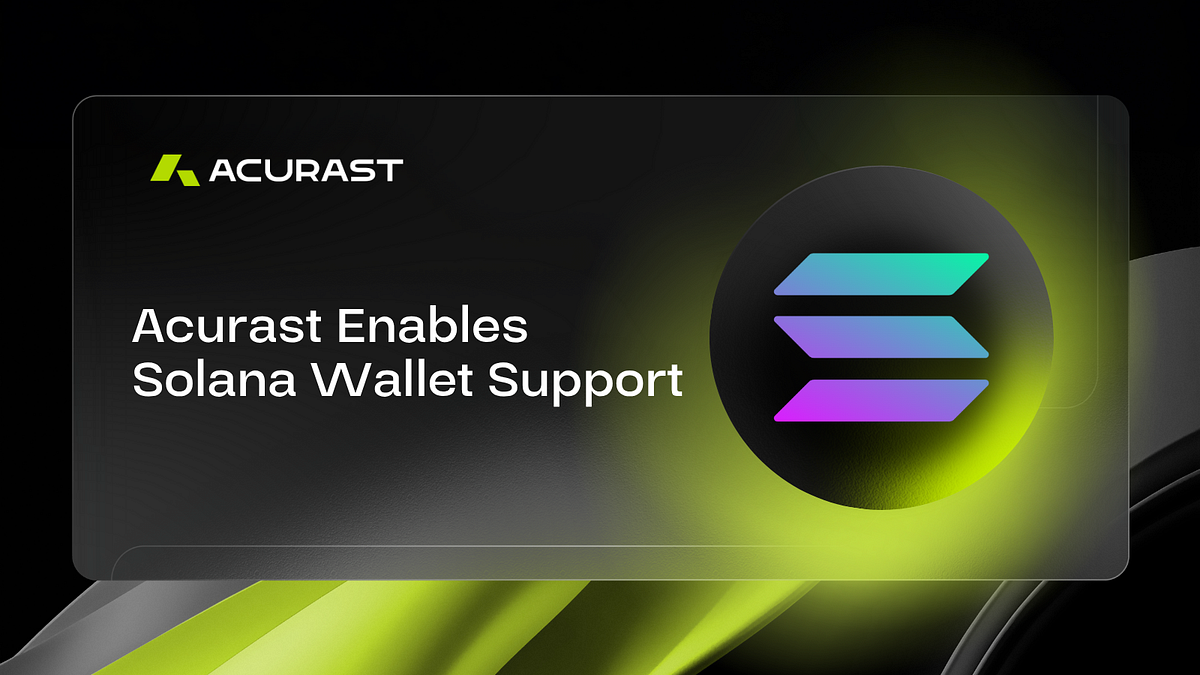
3 days ago
Acurast Integrates Solana Wallet Support to Enhance Decentralized Compute Accessibility
Acurast, a pioneering decentralized compute network based in Zug, Switzerland, has recently announced the integration of Solana Wallet support into its Android and iOS applications. This significant update aims to simplify the onboarding process for new contributors, allowing them to utilize wallets like Phantom to connect their smartphones and provide compute power while earning rewards. With this enhancement, Acurast is not only expanding its accessibility but also reaching a broader audience within the web3 ecosystem. Co-Founder Alessandro De Carli emphasized the importance of inclusivity and ease of access in decentralized computing, stating that the future must be fast and user-friendly.
The core mission of Acurast is to redefine cloud computing by transforming everyday smartphones into secure, decentralized compute nodes. Leveraging Trusted Execution Environments (TEEs) found in modern mobile devices, Acurast offers a scalable and confidential compute infrastructure that operates independently of centralized data centers. With over 65,000 active phones contributing to the network and processing 250 million transactions across 130+ countries, Acurast has established itself as the world's most decentralized compute network, showcasing the potential of community-driven technology.
The integration of Solana Wallets is particularly noteworthy due to Solana's reputation as a fast and cost-effective blockchain ecosystem with a growing user base. This development allows users to quickly connect their wallets to the Acurast Hub, onboard their devices in minutes, and securely provide compute resources. The latest versions of Acurast Core and Acurast Lite are now available on both the Play Store and App Store, making it easier than ever for users to join the movement towards a resilient and community-powered compute network, especially in light of vulnerabilities in traditional cloud infrastructure.
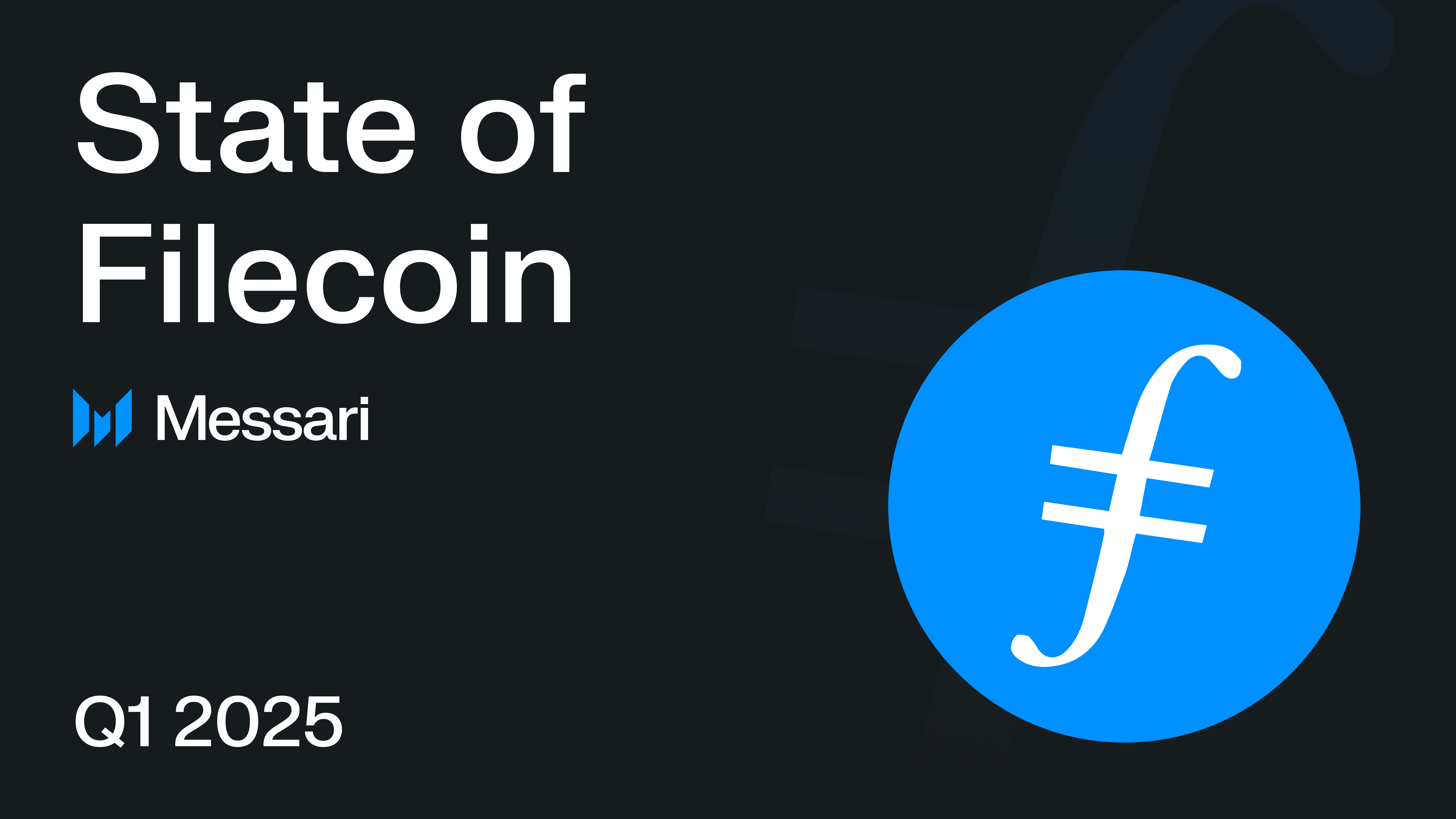
3 days ago
Filecoin's Strategic Shift: Emphasizing High-Value Storage and Ecosystem Growth in Q1 2025
In Q1 2025, Filecoin made significant strides in its evolution as a decentralized storage network, deploying over 5,000 unique contracts on the Filecoin Virtual Machine (FVM) and facilitating more than 3.2 million transactions. The upcoming launch of Proof of Data Possession (PDP) and the Filecoin Fast Finality (F3) upgrade are set to enhance transaction settlement speeds and data verification processes. Partnerships with AI and blockchain networks, including Aethir and Cardano, have further solidified Filecoin's position as a reliable platform for decentralized data storage, while the introduction of FIL ProPGF aims to support public goods development within the ecosystem.
Despite a decline in active storage deals and overall network utilization, which fell to 30%, Filecoin is pivoting towards high-value, enterprise-grade storage solutions. Approximately 1,300 petabytes of data were stored through active deals, reflecting a strategic focus on long-term, quality storage rather than sheer volume. Collaborations with institutions like the Smithsonian and MIT highlight Filecoin's commitment to preserving cultural and academic data, while the introduction of USDFC, a FIL-collateralized stablecoin, facilitates stable payments and DeFi participation without the need to liquidate FIL holdings.
The network's financial landscape also saw a decline, with FIL’s market cap dropping 41% to $1.8 billion amid a broader market downturn. However, engagement with Filecoin-native services remained strong, evidenced by increased FIL inflows. The Network v25 upgrade and the anticipated F3 upgrade are expected to streamline operations and enhance user experience. As Filecoin continues to adapt and innovate, its focus on high-value storage, partnerships, and community-driven initiatives positions it for sustained growth in the evolving decentralized landscape.

3 days ago
Unilabs Leads the Charge in DeFi with AI-Driven Investment Strategies
The cryptocurrency market is experiencing a resurgence after a recent downturn, with Bittensor (TAO) breaking through its resistance levels and showing promising upward momentum. In tandem, Solana is also showing signs of a potential uptrend, following a period of stagnation. However, Unilabs is emerging as a standout project in this environment, having attracted over $30 million in assets under management (AUM) through its innovative passive income approach. Experts are highlighting UNIL as a project to watch closely in 2025, given its unique offerings in the decentralized finance (DeFi) space.
Unilabs is making waves as the world’s first AI-backed hedge fund manager, designed to give investors a competitive edge in the market. The platform incentivizes users through staking rewards for UNIL tokens and referral bonuses, which have contributed to its impressive AUM. With over 21 million UNIL tokens sold, the project offers access to four investment funds that span Bitcoin, real-world assets (RWA), artificial intelligence (AI), and mining sectors. Additionally, its AI Market Pulse tool provides valuable insights into investment opportunities, while the Memecoin Identification Tool aids high-risk traders in navigating the volatile memecoin landscape.
As the presale continues to gain traction, having already surpassed $114,000, each token is priced at $0.004, with expectations of a price increase in future rounds. Meanwhile, Bittensor has recently experienced a significant price increase, trading at $481 after a breakout above the $460–$470 resistance level. Similarly, Solana has regained momentum, currently trading around $176 after a notable rise. Both projects are capturing market attention, but Unilabs' innovative asset management features are poised to revolutionize crypto investment, making it a key player to watch in the coming months.
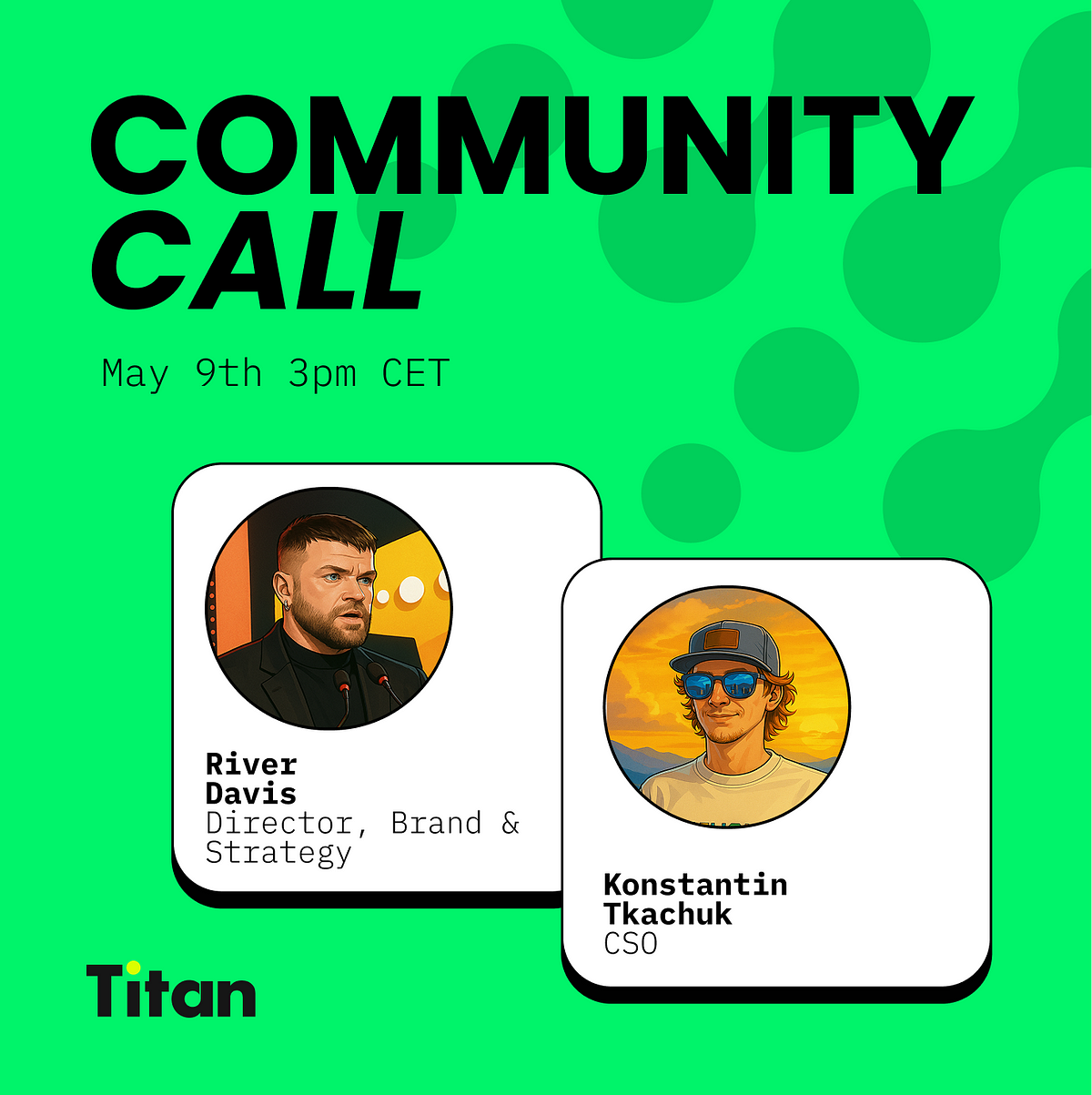
3 days ago
Titan Network's Community Space AMA Highlights Roadmap and Mainnet Preparation
On April 11, 2025, Titan Network held a significant Community Space AMA, focusing on its roadmap progress, technical upgrades, and opportunities for builders and contributors. The session featured project announcements, comprehensive answers to community-submitted questions, and a clear outlook for the path to the mainnet. Key topics included the finalized roadmap, which outlines essential steps leading to the mainnet launch, such as the release of the technical whitepaper, tokenomics paper, exchange pre-approvals, Series A fundraising, codebase finalization, and audit processes.
Titan Network is gearing up for a mainnet launch this year, emphasizing the importance of a secure, fully audited, and functionally complete rollout. The AMA also highlighted updates on Testnet 4, which is now accessible on Windows, allowing for easier node setup. Additionally, the new L1 node optimization plan promises increased rewards for compliant nodes post-mainnet. With TNT4 staking surpassing $1 million in staked tokens and a new cross-chain bridge enabling staking between Solana and Titan chain, the ecosystem is expanding rapidly. The team is also working on merging Testnet 3 and 4, although no specific date has been set yet.
In terms of functionality and infrastructure, Titan's app is undergoing significant upgrades, including UI unification and intuitive node management. The team is exploring ambitious use cases, such as providing CDN infrastructure for major Web2 platforms. Future plans include attending global Web3 events and exploring partnerships in gaming and virtual worlds. The AMA also touched on tokenomics, with plans for dynamic reward adjustments, potential token burns, and governance tools post-mainnet. Community involvement is encouraged through various initiatives, including testing features, content creation, and a potential regional ambassador program, ensuring that Titan Network remains engaged with its user base.
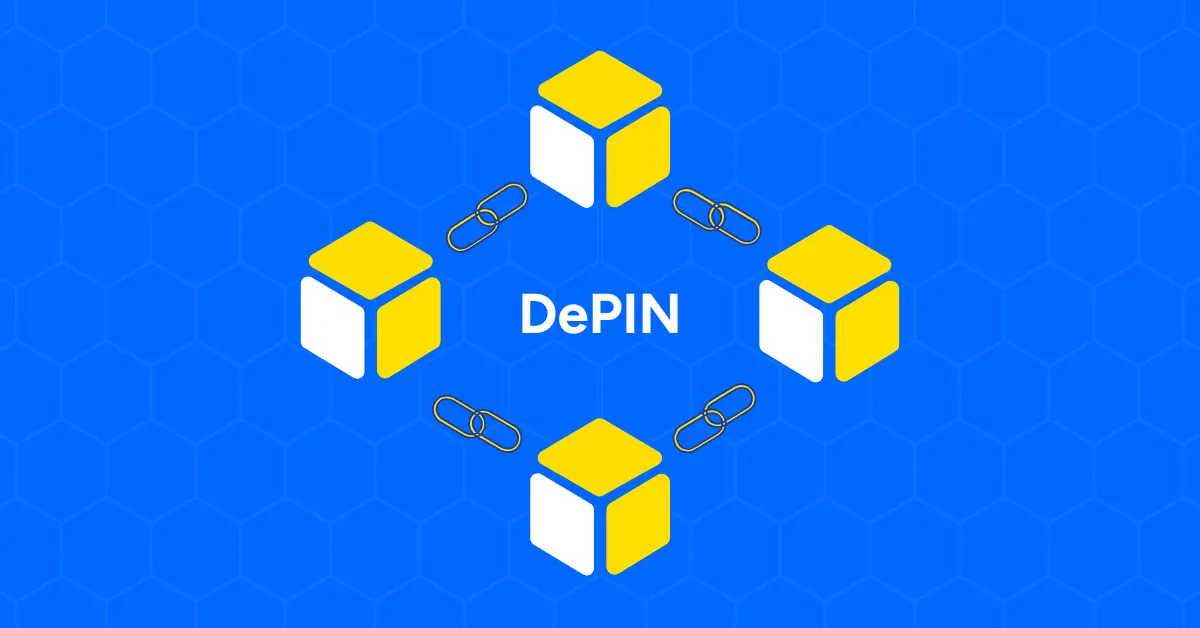
4 days ago
Exploring the Investment Potential of Decentralized Physical Infrastructure Networks (DePIN)
The recent analysis of Decentralized Physical Infrastructure Networks (DePIN) highlights its potential as a significant investment track in the cryptocurrency landscape. DePIN, which aims to decentralize the infrastructure of the physical world, is gaining traction alongside AI as a promising direction for investment. However, the sector currently lacks a leading project to catalyze its growth, with Helium being the most recognized name, albeit predating the DePIN concept. The analysis suggests that DePIN could yield substantial returns in the next 1-3 years, as it addresses real-world needs through decentralized solutions, such as reducing costs in telecommunications and AI data acquisition.
The investment rationale for DePIN is grounded in its ability to optimize traditional infrastructure models. For instance, in the telecommunications sector, traditional operators face exorbitant costs for spectrum licenses and base station deployments. In contrast, Helium Mobile allows users to become micro-operators by purchasing affordable hotspot devices, significantly lowering deployment costs. Similarly, in the AI domain, projects like Grass leverage distributed web scraping to reduce data acquisition expenses while ensuring compliance and diversity. These examples illustrate how DePIN can outperform conventional methods, making it an attractive investment opportunity.
Moreover, DePIN presents a unique intersection of infrastructure and consumer needs, addressing the challenges faced by both sectors. High-quality DePIN projects exhibit strong product-market fit and revenue generation, making them less susceptible to market volatility. As demonstrated by Helium's competitive pricing and Grass's user-friendly model, DePIN can effectively capture user interest and mindshare. While the path to widespread adoption may be gradual, the potential for DePIN to disrupt traditional industries and create sustainable value through innovative token economies is significant, positioning it as a focal point for investors looking ahead to 2025.

7 days ago
Filecoin Achieves Major Milestone in Decentralized Data Storage
Filecoin, the decentralized data storage network built on blockchain technology, has reached a significant milestone by securing 2.1 exbibytes (EiB) of data storage. This achievement not only places Filecoin at the forefront of the decentralized storage industry but also highlights its capacity to scale in response to the increasing demand for decentralized data solutions. With an additional 7.6 EiB of raw storage capacity available, Filecoin demonstrates resilience amidst market fluctuations and broader economic uncertainties in the tech sector, solidifying its influence in the industry.
A pivotal factor in Filecoin's rapid growth is the introduction of the Filecoin Virtual Machine (FVM) in March 2023, which has enabled the deployment of over 3,700 independent smart contracts. This development enhances the network's capabilities, supporting decentralized applications (dApps) and contributing to a total value locked (TVL) of 63 million FIL (approximately $273 million). The FVM is facilitating the expansion of decentralized storage beyond traditional Web2 applications, aiming to develop a fully decentralized internet that prioritizes data privacy and user sovereignty, marking a significant step in Filecoin's journey within the Web3 space.
Moreover, Filecoin is transitioning into a decentralized physical infrastructure network (DePIN), aligning with trends in decentralized computing and artificial intelligence (AI). This shift opens new avenues for enterprise adoption, allowing organizations to utilize decentralized data storage for various applications. The launch of new data services, including persistent storage and data privacy solutions, exemplifies this transition. With a remarkable uptime of 99.99% over the past 90 days, Filecoin ensures reliability for its users while fostering community engagement through regular updates and discussions. As the decentralized storage market matures, Filecoin's advancements reflect its leadership and commitment to shaping the future of decentralized infrastructure.
Signup for latest DePIN news and updates